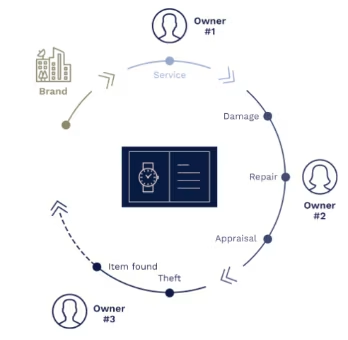Blockchain in supply chain

Blockchain technology offers significant benefits for supply chain management by enhancing transparency, security, and efficiency. It provides a shared, immutable record of transactions, enabling real-time tracking of goods, reducing fraud, and streamlining processes. This leads to increased trust among supply chain partners and can reduce costs by minimizing errors and delays.
In today’s global economy, supply chains are more complex and interconnected than ever. From sourcing raw materials to delivering finished products, businesses depend on countless partners, processes, and systems to ensure goods arrive on time and in perfect condition. Yet, traditional supply chains often struggle with a lack of transparency, inefficiency, and fraud.
Blockchain technology is emerging as a game changer, bringing unprecedented trust and visibility to supply chain operations.
How Blockchain Enhances Supply Chain Management
End-to-End Visibility
Blockchain enables companies to trace products in real time - from origin to final delivery. Each transaction or status update becomes a verifiable record. This transparency helps reduce counterfeiting, detect bottlenecks, and build consumer trust by proving authenticity.

Improved Efficiency and Automation
Manual paperwork and fragmented data slow supply chains and create opportunities for errors. Smart contracts, self-executing rules stored on the blockchain, can automate processes like payments, customs clearance, and inventory updates. This reduces administrative costs and accelerates transactions.
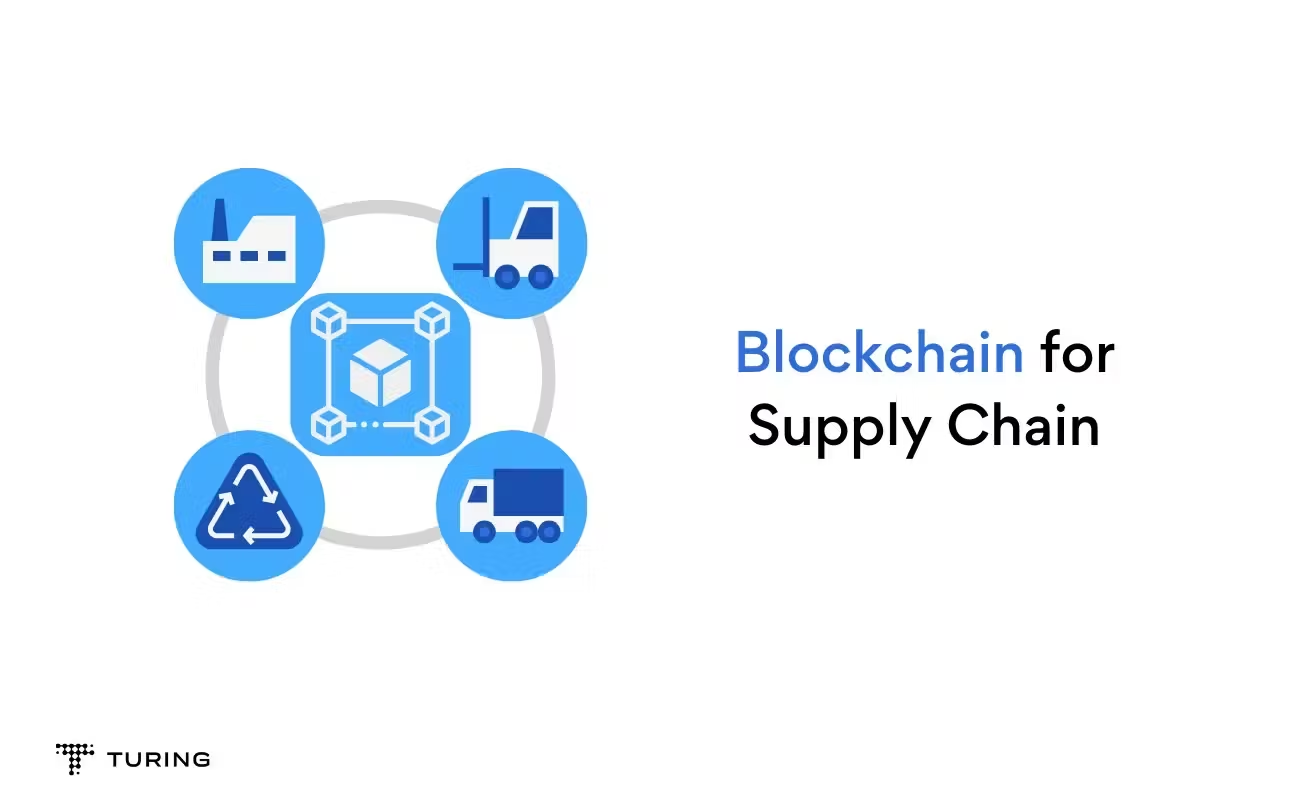
Stronger Security and Compliance
Every transaction is cryptographically secured and time-stamped, making records tamper-proof and auditable. Blockchain simplifies compliance with regulations, such as verifying ethical sourcing or environmental standards.
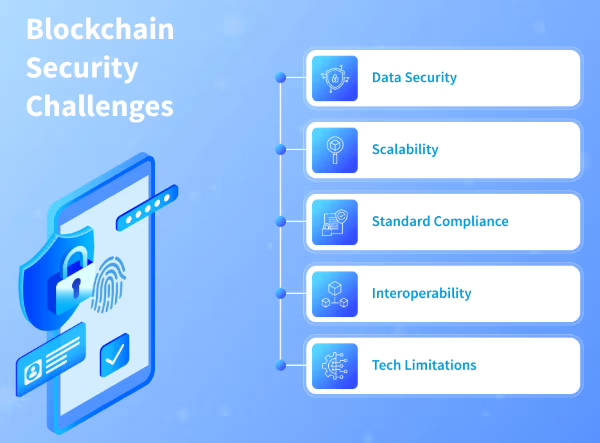
Enhanced Collaboration Across Partners
Traditional supply chains often operate in silos. Blockchain creates a shared, trusted record of information accessible to all authorized participants. Suppliers, manufacturers, logistics providers, and retailers can collaborate more effectively without relying on intermediaries to reconcile data.

Real-World Use Cases
Food Safety
Walmart uses blockchain to trace produce back to the farm in seconds, improving food safety and recall response.
Applies:
-
End-to-End Traceability: Records every step of the food journey—from farm to fork—in a secure, tamper-proof ledger.

-
Faster Recalls: Enables instant identification of contaminated batches, reducing the time needed for recalls from days to seconds.

-
Authenticity Verification: Confirms certifications such as organic, fair trade, or non-GMO, ensuring claims are credible.

-
Environmental Monitoring: Captures temperature and storage conditions throughout transport to prevent spoilage.

-
Fraud Prevention: Protects against counterfeit products and substitution with immutable records of origin and handling.

-
Supplier Transparency: Holds all suppliers accountable by sharing verified transaction histories across the network.

-
Consumer Confidence: Lets customers scan a QR code to see the product’s full journey and safety checks.

-
Regulatory Compliance: Simplifies and automates reporting to health authorities with accurate, real-time data.

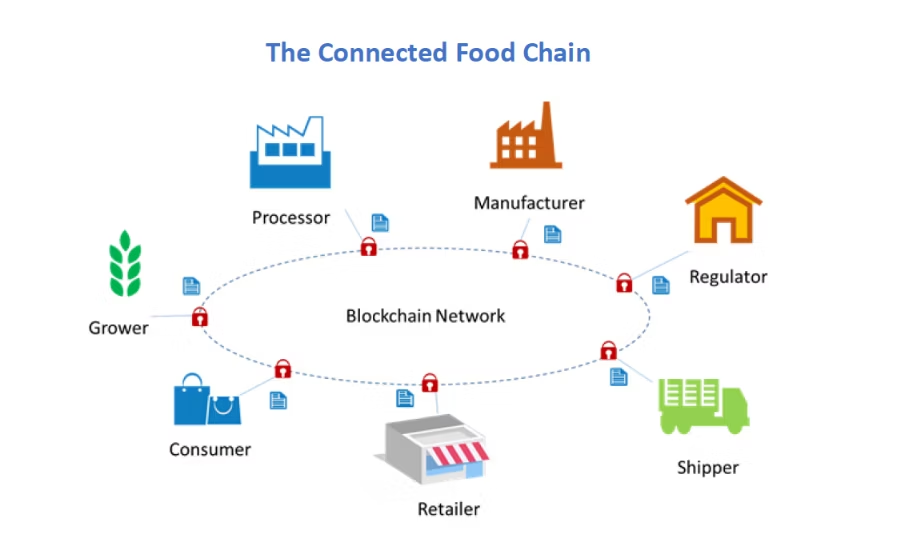
Pharmaceuticals
Companies track drugs to combat counterfeit medicine and ensure compliance with health regulations.
Applies:
-
Drug Traceability: Tracks each pharmaceutical product’s journey from manufacturer to pharmacy, preventing diversion and counterfeiting.

-
Authenticity Verification: Confirms that medicines are genuine by recording batch numbers and origin in an immutable ledger.

-
Supply Chain Visibility: Provides real-time oversight of storage, handling, and distribution conditions to maintain drug safety.

-
Counterfeit Prevention: Reduces the risk of fake medicines entering the market with transparent, tamper-proof records.

-
Environmental Monitoring: Records temperature data for sensitive products (e.g., vaccines, biologics) to ensure proper storage.

-
Regulatory Compliance: Automates reporting to regulators, simplifying compliance with laws like the Drug Supply Chain Security Act (DSCSA).

-
Stakeholder Collaboration: Improves coordination among manufacturers, distributors, wholesalers, and pharmacies through shared trusted data.

-
Patient Assurance: Enables pharmacists and patients to verify the authenticity and safety of medicines via QR codes.

-
Recall Efficiency: Allows rapid identification and recall of compromised or expired batches to protect public health.

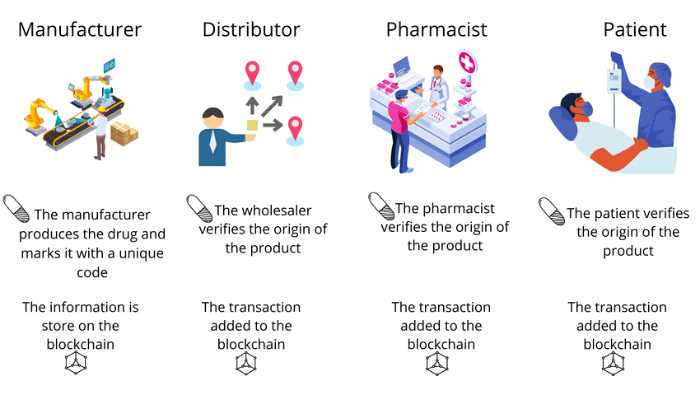
Luxury Goods
Brands verify product authenticity and fight gray market distribution through blockchain tracking.
Applies:
-
Proof of Authenticity: Creates an immutable digital certificate for each product to verify originality and prevent counterfeits.

-
Ownership Tracking: Records every transfer of ownership, enabling transparent resale and secondary market transactions.

-
Supply Chain Transparency: Traces materials and production steps from sourcing to final delivery to ensure ethical practices.

-
Fraud Prevention: Protects against unauthorized replicas and gray market distribution with secure, tamper-proof records.

-
Sustainability Verification: Validates claims about sustainable sourcing or fair-trade production to build consumer trust.

-
Customer Engagement: Provides QR codes or NFC tags so buyers can instantly check provenance and authenticity.

-
Warranty Management: Links warranty information and service history directly to the blockchain record of the product.

-
Theft Protection: Helps recover stolen items by proving legal ownership through a verified transaction history.

-
Brand Protection: Strengthens brand reputation by ensuring only genuine products reach the market.

